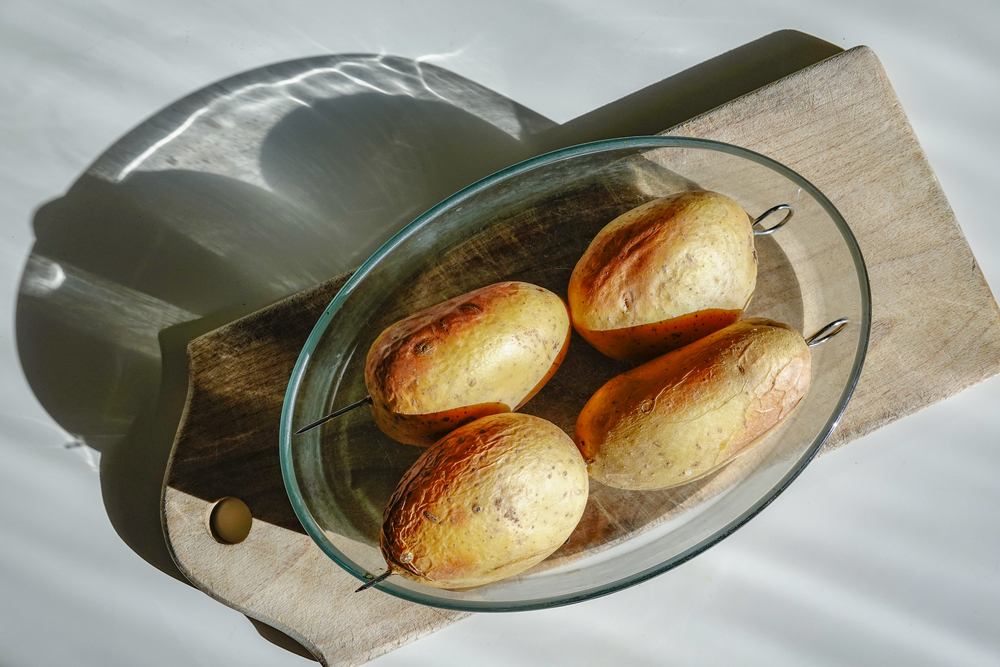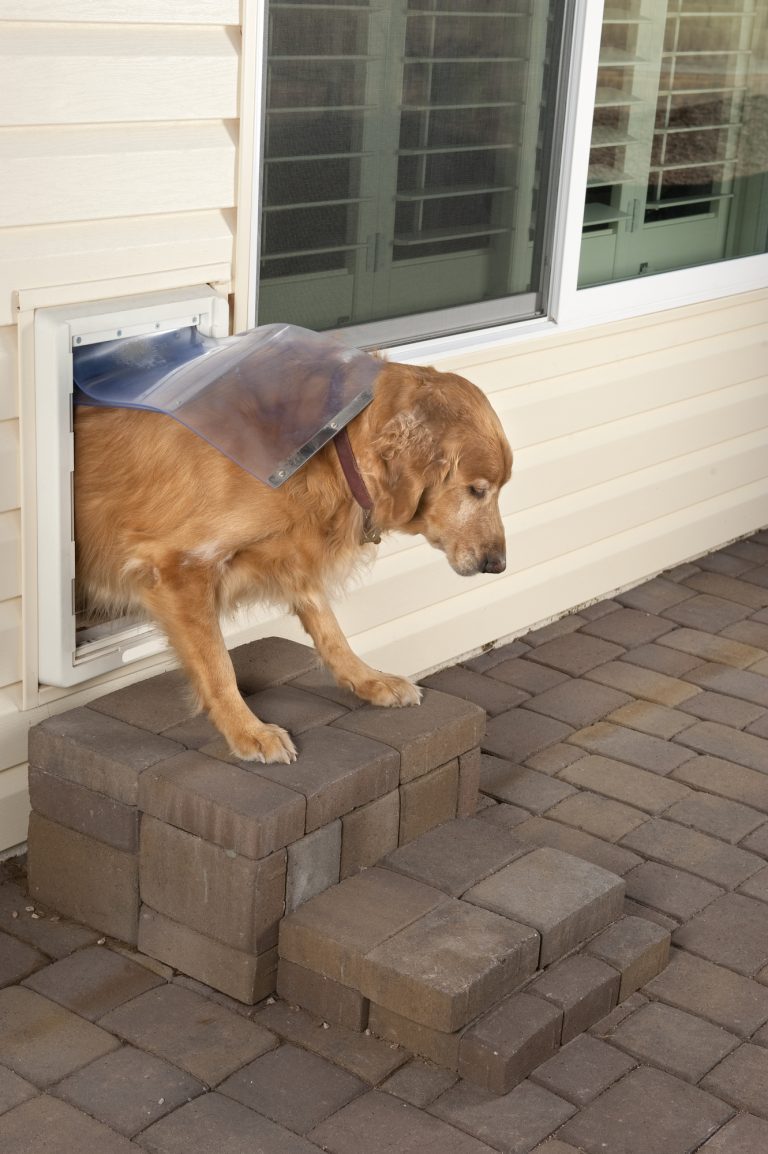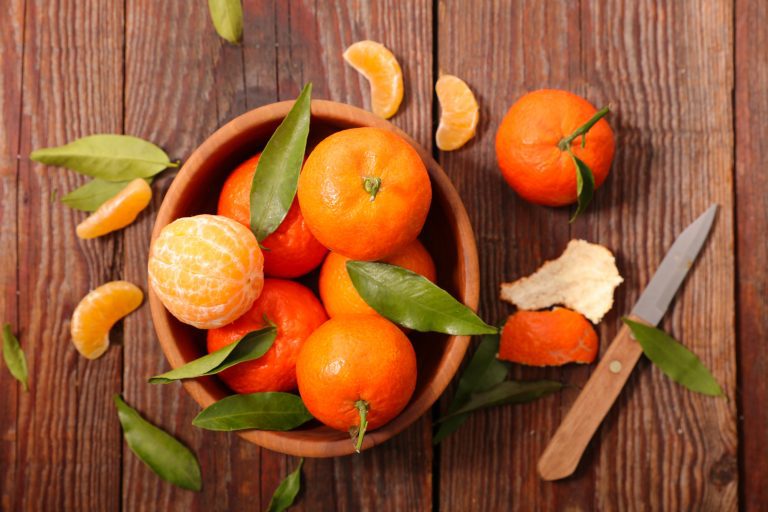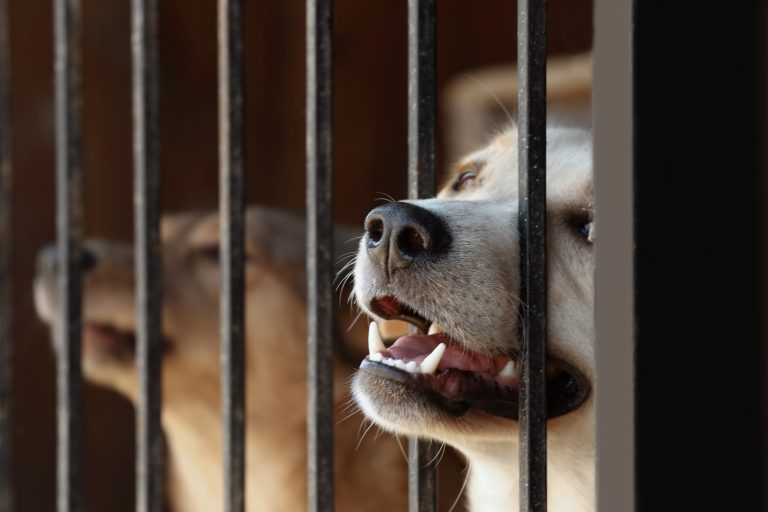Can Dogs Eat Potatoes?
One potato, two potatoes. How do we even begin to describe this versatile vegetable? Humans love them. Dogs love them, too. But the question is, can dogs eat potatoes? Is it safe for them? Or perhaps it is one of those foods we love feeding them but is actually harmful to them?
What is the ultimate truth?
Yes, absolutely! When given in moderation, potatoes bring great benefits for the health of our beloved canines. As long as they are served plain and unseasoned, there is no reason not to let Fido munch on this starchy goodness!
Of course, like all other foods, moderate consumption is the key to making sure that our dogs eat a proportionate amount of potatoes and no more than what makes a healthy serving. However, there are instances when dogs cannot and should not eat potatoes, as we will discuss later in this blog post.
Potatoes 101: Fun Facts & Benefits
We know that potatoes are starchy root vegetables called tubers and that they are cousins with tomatoes and tobacco. All in all, there are 7 types of potatoes we identify as russet, red, yellow, purple, white, fingerling, and petite. For this blog post, we will only be focusing on white potatoes – the most common of them all.
Potatoes are so diverse, you can use them in every dish imaginable. You can add them to soups, stews, and salads. You can also incorporate them as a dessert, appetizer, main dish, snack, and side dish. They are generally rich in potassium, vitamin C, folate, and vitamin B6.
Aside from being versatile vegetables, there are also plenty of ways to cook potatoes. You can bake ‘em, roast ‘em, pan-fry, sauteé, mash, grill, steam, or microwave. There are fun ways to eat them. As for comfort foods, “french fries”, “potato chips”, and “baked potatoes” are at the top of our heads.
That said, things are different for dogs. The best way to cook them is by boiling, baking, steaming, or dehydrating, all with no seasonings or other flavors. Just plain ole potatoes for Fido!
Indeed, potatoes are kitchen staples for households all over the world. So, what about them are actually beneficial for canines? Let us discuss their benefits in the next subsections.
1: VITAMIN B6
Vitamin B6 primarily helps in promoting the production of red blood cells. This works both in human and canine bodies. Vitamin B6 plays a significant role in metabolizing protein, fat, and carbohydrates – the key nutrients we need to physically function well.
Since canine bodies cannot synthesize vitamin B6 on their own, Fido can acquire it from food and supplements. Overall, this vital vitamin helps improve mood, thereby reducing the symptoms of canine depression. Surprisingly, vitamin B6 can also promote better eye health by regulating blood levels.


2: VITAMIN C
We all know that vitamin C is our first line of defense against viruses, illnesses, and bacteria. It strengthens the human body as much as it improves our dogs’ immune systems. It is an essential antioxidant that removes potentially harmful free radicals in the body.
It also contains properties that effectively reduce inflammation and, in addition, add nutrients to the vitamin C already synthesized in the bodies of our beloved dogs. So the next time you find Fido lacking vitamin C, consider boiling a white potato for them.
3: IRON
We often hear the term “iron deficiency” in humans. But can dogs experience this too? In fact, they can. Iron promotes holistic energy and regulates body temperature. It also improves focus, supports gastrointestinal processes, and protects the immune system.
In fact, iron deficiency anemia in dogs is quite dangerous. It can be life-threatening for dogs and arduously expensive for the owners. Iron deficiency produces lethargic and weak dogs prone to illnesses.
4: POTASSIUM
Potassium maintains homeostasis in blood. Meaning, your dog has physical, internal, and chemical balance inside the body. It is also responsible for regulating the pH level in the body so the chances of dehydration are prevented.
By large, potassium is necessary for nerve impulses and muscle contraction. When freshly harvested, a piece of white potato is made up of 80% water and 20% dry matter (starch). The fluid in the potato makes potassium possible.
Consider that when we get cramps, we immediately look for water. This means having potatoes in our diet makes all the more sense! In the same way, your dog can greatly benefit from the potassium content of potatoes.
5: FOLATE
Moving on to the folate, this nutrient is essential for normal metabolic functions. It normalizes blood levels inside a dog’s body and utilizes amino acids in protein production. What could be the most important benefit of folate, is reducing the risks of cardiovascular diseases among canines like dilated cardiomyopathy and valvular degeneration.
When Are Potatoes Bad For Dogs?
We conclude potatoes are good for dogs given the right circumstances. But they cannot be all that perfect, right? So, what are some absolute instances when dogs cannot have potatoes? What happens to them if they eat it?
Let us discuss 4 situations wherein potatoes are considered bad for dogs.


1: When Potatoes are Served Raw
Although there are some owner who feed their dogs on a raw food diet, they should not be served with raw potatoes, just like how they cannot eat flavored potatoes.
Since potatoes are actually grown underground, exposing them to light leads to a chemical reaction. When white potatoes are exposed to light, they become green in color and form solanine, which is a colorless alkaloid that tastes bitter. Exposure to light increases the solanine level in potatoes by 10 times.
Serving potatoes in raw form is bad enough, giving dogs green potatoes with solanine is even worse.
Some symptoms of solanine poisoning are as follows:
● Low body temperature
● Diarrhea
● Slow breathing
● Abdominal pain
● Headache
● Fever
● Slow pulse
● Vomiting
Suffice to say, never serve green potatoes to your dogs or eat them yourself. The risk is not worth it. Instead, boil, steam, or mash them and serve to your canine unsalted and unflavored.
2: When the Dog is Diabetic
Potatoes are rich in starch and carbohydrates. An average-sized potato can pack as much as 30 to 65 grams of carbohydrates a piece. For healthy dogs, when the carbohydrates are broken down into sugars, it goes to the bloodstream. However, when the dog is diabetic, the sugar stays inside the body and this could lead to a series of other conditions or illnesses.
3: When the Potatoes are Seasoned
Aside from raw potatoes, seasoned potatoes can also induce the same symptoms of solanine poisoning, as we mentioned earlier.
This could lead to diarrhea and vomiting. The sodium content in seasoned potatoes can also increase thirst in canines, which then can lead to dehydration, nausea, kidney trouble, heart problems, and agitation.
4: When Served in Big Ration
Dogs have a generally big appetite and will eat whatever you serve them (unless you got yourself a finicky eater). However, when it comes to potatoes, you might want to be extra cautious of the serving size you give them.
Too many carbohydrates become stored fats inside the body. Without burning it off and keeping the excess fats, canines become susceptible to obesity. In North America, the general canine population has an obesity rate of 25 to 30%.
When left unaddressed, obesity develops more risks such as various types of cancer, heart disease, hypertension, osteoporosis, urinary bladder stones, and anesthetic complications.
Can Dogs Eat Potato Skin Too?
So now we know when we can and should not serve potatoes to dogs, what about the skin of the crop? We humans eat potato skin, either baked or fried, so can dogs have them, too?
To be fair, dogs can actually eat the skin of the potato, granted that they are served in moderation. Potato skin contains oxalates and too much potato skin can lead to kidney problems.
Like potatoes, the skin should be kept unseasoned and only boiled, steamed, or baked to keep its nutritional value without the added seasonings or flavors.


What About Mashed Potatoes: Are They Safe For Dogs?
If baked or boiled potatoes are fine for dogs, then mashed potatoes are also completely safe for them. You can serve mashed potatoes to Fido, however, it would not look like your usual mashed potatoes at parties.
As repeatedly advised, do not add any seasonings. Keep it plain, simple, and safe for your beloved dog. Also, give a small amount only and not a bowl filled to the brim.
3 Recommendations:
Speaking of cooking methods, we thought this blog post would not be complete without recommending some products that you could use in preparing your dog’s potatoes. So, we gathered 3 of the most high-rated products from Amazon just for you. Check them out below!
1: KISEER 3 Pack Reusable Microwave Potato Bag
Want to serve your dog potatoes but constantly pressed for time? Then you will love this Microwave Potato Bag from KISEER. In just 4 minutes, your hound can enjoy perfectly cooked potatoes with their moist goodness and freshness.
Each bag is made with 100% polyester fiber cloth that you can wash in the machine or in the sink. Its reusable material makes this potato bag truly sustainable and economical for daily use. Its top-grade material is reliable for repeated use and you cannot deny the sturdiness of its construction. Less condensation means a cleaner microwave, too.
Expect the potatoes to come out delish, fresh, and every bit gobble-worthy. When it comes to storage, this microwave bag’s foldable feature makes it convenient to store away. Once done using, just wash, dry, and fold up the bag. Voila! Finally, not just for potatoes, this Microwave Bag is suitable for corn, bread, and sweet potatoes, too.

2: BELLA Two-Tier Food Steamer
Steaming is a great way to cook potatoes well without using any oil. The BELLA Two-Tier Food Steamer comes with two tiers to allow more efficient cooking without overcharging on your electricity.
This one has a 7.4 quartz cooking capacity that can cook multiple items at once. This allows you to steam potatoes for your dog on the top tier while you steam vegetables for you on the lower tier. It is definitely time-saving, easy, and hassle-free!
For non-experts, the BELLA Two-Tier Food Steamer just made your life easier with its auto shut off and boil-dry protection. This means there is no need to worry about your food items drying up past their cooking time.
This also takes away the need to do guesswork by providing a water reservoir view window as well as a steaming guide chart. It has a quick start heating system so you can immediately get to steaming in just 30 seconds. All parts of this food steamer are dishwasher-friendly for your convenient clean-up.

3: Outward Hound Fun Feeder Slo Bowl
Potatoes are delish, so we cannot really blame if your dog is extra giddy to gobble up their freshly prepared potato. To help with their digestion, the Outward Hound Fun Feeder Slo Bowl does the job.
Slow bowls can help dogs slower their eating pace by 10x. This aids in their digestion while letting them enjoy every bite of their food. The non-slip base stops the bowl from moving about so Fido can eat properly. The Slo Bowl is suitable for wet, raw, and dry food, including mashed potatoes!
Washing is also made convenient with this bowl’s compatibility with the top-rack dishwasher. For your peace of mind, the Outward Hound Fun Feeder Slo Bowl is made with 100% food-safe material. It has no BPA, PVC, lead, or phthalate.
Best of all, it comes in various sizes and designs. Choose from Turquoise Drop, Blue Notch, Orange Swirl, Purple Flower, Mint Wave, and Wobble Bowl available in Small (tiny), Medium (mini), and Large (regular).

FAQs on Can Dogs Eat Potatoes?
Final Thoughts: Can Dogs Eat Potatoes?
Definitely yes! However, take note that this is when given in a proportionate serving without added spices, salt, and other types of seasonings, potatoes are completely safe for dogs to eat.
The only occasions when your furkids are not allowed potatoes are when they are diabetic or when the potatoes are served raw, seasoned, or in big portions.







